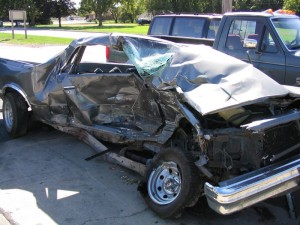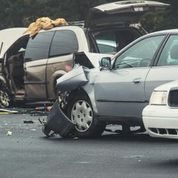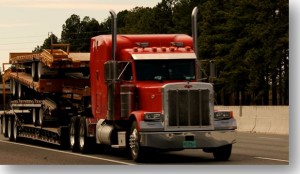Jan 15, 2014 | Car Accidents, Criminal Defense, Personal Injury, Uncategorized
A 20-year-old Orangeburg man, suspected of driving under the influence, was arrested after a fatal crash in Orangeburg County. Police report that the man was driving along Riverbank Drive at around 1:00 a.m., and while attempting to pass another vehicle, they collided with each other. The 19-year-old driver of the other car was killed in the accident, and the other two passengers were taken to the hospital. The alleged responsible driver did n ot receive any injuries in the accident. While the man faces two counts of felony DUI, he also may face civil penalties.
ot receive any injuries in the accident. While the man faces two counts of felony DUI, he also may face civil penalties.
In the state of South Carolina, the rule for personal injury law follows the Comparative Negligence standard. Here, even if a plaintiff is partially negligent, that plaintiff can still recover if their negligence does not exceed the negligence of others. The recovery will, however, be reduced in proportion to the plaintiff’s negligence. The major question in South Carolina is whether 50% or 51% passes the threshold for allowing negligence recovery.
The rule in South Carolina is that the plaintiff’s negligence must not exceed that of the defendants. So, in a case where a jury determines that the plaintiff and the defendant split fault exactly 50-50, the plaintiff will receive 50% of damages. If the plaintiff is the least bit more at fault than the defendant, the plaintiff is barred from recovery. This rule is called the 51% bar. In a multi-party lawsuit, the plaintiff’s negligence must not exceed the combined negligence of the defendants. So, even if there is no defendant individually responsible for the 51% negligence, the plaintiff’s claim is not barred.
This is a much easier bar than North Carolina. North Carolina adheres to the Contributory Negligence standard which states that if the plaintiff is found to be 0.00001% at fault, his claim is barred. Here, a North Carolina case may prevail on the fact that the driver was “reckless, willful, and wanton.”
If you have been injured in an accident in North or South Carolina, contact the law offices of Reeves, Aiken & Hightower, LLP for a confidential consultation toll-free at 877-347-5999.
Jan 14, 2014 | General, News, Uncategorized, Wrongful Death
In each and every South Carolina county, there is a specific probate court. Probate court is simply a different type of system/courthouse, in which a decedent’s estate will enter to distribute the deceased member’s devise’s, residuals, and pay off debts.
The probate courts of South Carolina will have exclusive original jurisdiction over all South Carolina matters involving or related to someone who has passed away estate and all their belongings, including both personal and actual land property. The SC Probate courts moreover are entitled to hear any will contests, the determination of who is considered to be an “heir” entitled to take from the estate, and also any issues with the construction of the will.
Additionally, probate courts are permitted and mandatorily must hear any cases covering the protection of minors, trusts, marriage licenses and any ” involuntary commitments.” S.C. Code 62-1-302(2012.) However, Family Court handles matters of divorce, child custody, and alimony.
So the next obvious question is, what actually happens in this so-called probate court? Accordingly, the parties enter into the court, and after the close of the pleadings, the parties are allowed to remove matters from the probate court to the circuit court( which is the typical courthouse you would be thinking of in your head right now), for all matters involving the “formal” probate of the wills, any actions to try title, trusts with discrepancies, appointments of personal representatives for the estate, and most importantly, any action for more then $5,000 that carry with it the Constitutional protection of a right to trial by jury. S.C. Code 62-1-302(2012.)
What is important to note is that these probate courts do not handle any civil liability claims for fatal perishes, such as wrongful death suits. Wrongful death suits are taken care of in circuit court first, and then appealed up if need be. These claims are different then probate because they concern the matters that caused the death to the decedent. Probate would occur later, after the wrongful action was taken care of, and the estate was ready to be distributed by the probate judge in the county in which the decedent died, had property, or left property.
If you have any sort of familial issues, such as the one listed above, and a wrongful death action took place, contact the attorneys at Reeves, Aiken, and Hightower, LLP toll-free at 877-374-5999 for more information on how we can help you with your case.
Jan 10, 2014 | Car Accidents, Personal Injury, Uncategorized
A woman was killed after a head-on Spartanburg County, South Carolina collision. The wreck occurred at 7:55 p.m. on Peachtree Road, near the town of Chesnee. Troopers have reported that the woman was  traveling south when she ran off the right side of the road, over-corrected and came back onto the road and crossed the path of an SUV. The woman was not wearing a seatbelt, and was pronounced dead at the scene.
traveling south when she ran off the right side of the road, over-corrected and came back onto the road and crossed the path of an SUV. The woman was not wearing a seatbelt, and was pronounced dead at the scene.
The driver of the SUV, and the other two passengers in the vehicle were transported to Spartanburg Regional Hospital as a result of injuries sustained. They were wearing their seatbelts. Here, it is likely that the driver who was killed, would be considered “at fault,” due to the fact that it was likely her negligence that caused her to cross the path of the SUV. However, the accident is still under investigation at this point.
In South Carolina, we abide by the standard of comparative negligence, which, unlike the more stringent contributory negligence standard in North Carolina, attempts to provide you with compensation for damages even if you were partially at fault in the auto accident.
In a comparative negligence accident claim, you must show that the other driver was more than 50% liable for the car accident. If it is determined that the other driver is more liable than you for the crash, then they, or their insurance company will be required to compensate you for that percentage of liability.
For example, if you have a claim against another driver for $40,000, and through comparative negligence it is determined that they were 70% negligence for the accident, you would receive $28,000 in compensation.
While this does not cover the entirety of the car accident, it is far better to receive some compensation for the car accident that to bear the full cost. A comparative negligence claim is very involved and can explore factors such as weather conditions, road hazards, other drivers, other vehicles, witness statements, and police records.
If you have been involved in a collision in North Carolina, be vigilant of the high threshold one must prove in order to recover. This is why it is important contact an attorney with experience in the realm of personal injury law. For a confidential consultation, contact the law offices of Reeves, Aiken & Hightower, LLP toll free at 877-374-5999 for more information.
Jan 9, 2014 | Car Accidents, Personal Injury, Uncategorized, Wrongful Death
If you are in an accident the first feeling you have is usually one of panic. It is a very nerve wracking experience and can be very disorienting. However it is important to know what to do if you are in an accident.
A good habit is to keep your insurance card and registration in your vehicle at all times. This information will be needed should you be in an accident. Should you find yourself in an accident try to remain calm and call 911 immediately to have an officer dispatched to your location. The dispatcher will need to know where you are and if you don’t know what road you are on let them know any landmarks you see around you. Most dispatchers will know where you are even if you are not sure what road you are on if you can describe some landmarks around you.
Generally you should not move you vehicle from the scene of the accident so that the responding officer can take down an accurate report of the scene of the accident. This may vary depending on what jurisdiction you are in as some jurisdictions require small accidents such as fender benders to move to the side of the road until an officer can respond.
Once the officer has arrived you will need to give him all your information and he take a statement from you to investigate how the accident happened. The officer will give a citation to the driver he concludes was at fault. In some cases the officer will give a citation to both drivers involved in the accident if he is unable to determine exactly who was at fault. He will still make a report and then leave it to the courts to decipher where fault should be assigned. This is important to remember since just because you receive a citation does not mean you are at fault.
If you have been involved in a situation such as the one listed above, you need the help of a personal injury attorney. Contact the attorneys at Reeves Aiken & Hightower LLP toll-free at 877-374-5999 for a private, confidential consultation to review your particular case.
Jan 8, 2014 | Car Accidents, Criminal Defense, Trucking/Tractor-Trailer Accidents, Uncategorized
Three people were seriously injured when a tractor-trailer and car collided on Interstate-77 last month.
In late December, a car and tractor-trailer were involved in a deadly crash that seriously injured three individuals.
The accident occurred on May 2nd, right on the North Carolina and Virginia border on Interstate 77, which connects Columbia, SC to Ohio, by way of cities including Charlotte. This is a very typical spot for accidents to occur due to the curving roads that bind the two states.
According to the police reports, driver of a small sedan lost control of his vehicle and crossed over into the fellow driver’s lanes. Particularly, he crossed the path of a FedEx truck/tractor-trailer, who was making a haul to Harper’s Ferry at the time.
Upon impact, the tractor-trailer caught fire and burst into flames. It is believed it may of had some hazardous materials inside. The Hazmat crew was called to the scene immediately.
Luckily, nothing leaked out of the containers in the tractor-trailer,so the flames were able to be contained. The crew took about 4 hours to clean up the debris; blocking two of the four lanes on the highway.
One of the driver’s was taken to the closest hospital via helicopter, while the paramedics drove the other two injured parties to the hospital by ambulance.
Large commercial “big rigs” or “18-wheelers” are the biggest, heaviest vehicles permitted on our nation’s highways. Because of their sheer size and weight, they can become unstable at highway speeds unless all rules are strictly followed. If not, “accidents” occur and almost always results in serious injury and/or death.
Both State and federal agencies have tried to minimize the risks by enacting extensive regulations for the trucking industry. Nevertheless, many trucking companies and private drivers still refuse to follow basic safety and maintenance rules that have been put in place. With the difficult economy, there has been less demand for trucking combined with higher fuel prices.
As a result, routine maintenance is delayed, and drivers are pressured to get their loads to their destinations quickly, no matter what. As a result, truckers are forced to drive longer and perform vehicle maintenance only when absolutely necessary just to survive. The fatigue that the truckers experience is exponential when determining who is at fault
If you have been injured in a similar action listed above, contact an attorney as soon as possible to hear your possible rights. For more information on serious tractor-trailer accidents and injuries, contact the tractor trailer accident attorneys at Reeves, Aiken, and Hightower, LLP toll-free at 877-374-5999 for more information.
Jan 8, 2014 | Child Accidents, Criminal Defense, Uncategorized, Wrongful Death
Some states will allow immunity between husband and wife, parent and child, or any other type of familial relationship when it comes to domestic relations.
However, accordingly, South Carolina will give NO familial immunity to any crimes against the person or against their property. In other words, just  because your family member committed the crime against you or your property, does not mean that you can not bring a case against them. Take for example, a case where there has been domestic abuse by one spouse against another. Not only can the state press charges, but through state law, the victim is also allow to sue for civil battery is he/she so chooses.
because your family member committed the crime against you or your property, does not mean that you can not bring a case against them. Take for example, a case where there has been domestic abuse by one spouse against another. Not only can the state press charges, but through state law, the victim is also allow to sue for civil battery is he/she so chooses.
For crimes against the person- there is no family immunity-
There are no general principals of immunity that would apply in criminal prosecutions of parents and spouses for crimes against any other family members. Under old common law, a man could not be prosecuted for raping his wife, as they have engaged in intercourse previously. This is no longer the rule in South Carolina, any most states. The rule is now that there is no “marital exception,” that still applies, and a man can be charged by wither his wife or the state for domestic abuse in the form of any type of violence, including rape.
Moreover, South Carolina has a specific statute that deals with this “spousal sex battery,” as it is referred to it in the South Carolina Code. According to SC 16-3-615., “ it is required that there is a physical manifestation of force or violence needed to overcome the victim. This offense is exempted from rape shield statute. This means that South Carolina goes one step further, and adds an additional element, requiring that there be mens rea( the requisite mental state) to actually force your wife. The purpose of this statute is to prevent rambunctious husbands and wives from later claiming rape if they had been rough in the past.
For crimes against property- there is no family immunity-
Again, there is general principle of immunity that applies to criminal prosecutions for parents and spouses for crimes against property of family members. For example, if there were a case where an estranged husband broke into his estranged wife’s home that he no longer lived in, and burglarized it, he would and could be prosecuted by the state for such a crime, with no immunity protection whatsoever.
Domestic Relations in South Carolina can be tricky and complicated. If you have been charged with a domestic relation crime, contact the law offices of Reeves, Aiken, and Hightower, LLP. Mrs. Bea Hightower has been a child’s advocate for over 20 years, as well as a guardian ad litem. If there is domestic abuse in your South Carolina home, contact us toll-free at 77-374-5999 for more information.
 ot receive any injuries in the accident. While the man faces two counts of felony DUI, he also may face civil penalties.
ot receive any injuries in the accident. While the man faces two counts of felony DUI, he also may face civil penalties.

 traveling south when she ran off the right side of the road, over-corrected and came back onto the road and crossed the path of an SUV. The woman was not wearing a seatbelt, and was pronounced dead at the scene.
traveling south when she ran off the right side of the road, over-corrected and came back onto the road and crossed the path of an SUV. The woman was not wearing a seatbelt, and was pronounced dead at the scene.
 because your family member committed the crime against you or your property, does not mean that you can not bring a case against them. Take for example, a case where there has been domestic abuse by one spouse against another.
because your family member committed the crime against you or your property, does not mean that you can not bring a case against them. Take for example, a case where there has been domestic abuse by one spouse against another.